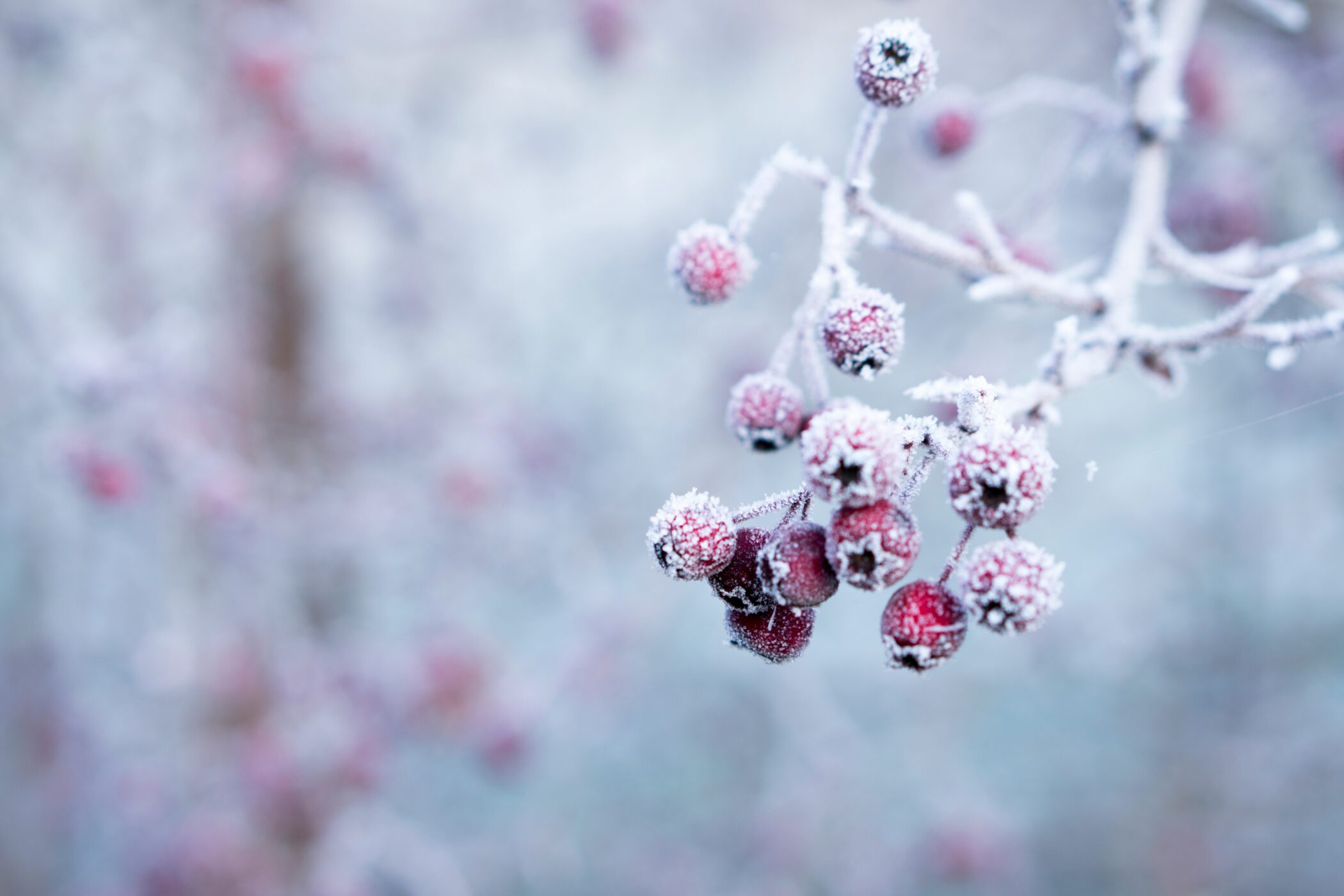
Everything You Need to Know About Coping With the Winter Season Change
With the winter season upon us, it is especially important that we focus on maintaining balance and harmony within our bodies and with the world around us. Unlike other more temperate seasons, winter can make finding that balance more challenging. The days are shorter, the weather moves through extremes of wet, cold, and windy, and there seems to always be some kind of flu or cold going around. But winter doesn’t have to be so hard. Knowing what to expect and where to focus your energies will help you maintain your balance and natural resilience during the coldest months of the year.
Winter according to Traditional Chinese Medicine
In Traditional Chinese Medicine, winter is viewed as a time of recovery and rejuvenation. This season is associated with the water element, which represents our deep energy reserves, as well as our ability to flow through life’s challenges without getting caught up or dragged down. It’s also associated with Yin energy, which is receptive, cool, and dark. Winter is an opportunity to rest and replenish our energy reserves in preparation for the year to come.
As the organs most closely associated with water, it is important to focus on the kidneys and urinary bladder during this season. Both play key roles in fluid regulation in our bodies. The kidneys are the storehouse for Jing, which is the TCM concept of “essence” and is comprised of Yin and Yang energy. As the storehouse, the kidneys are responsible for sparking or igniting the energy that flows through our bodies. The urinary bladder is a reservoir where water in our bodies collects. When the bladder is not functioning properly toxins accumulate causing depression, fatigue, and difficulty adapting to new circumstances.
Why are the seasons important in Traditional Chinese Medicine?
In Traditional Chinese Medicine, the body is viewed as a microcosm of the larger surround universe. Each season corresponds with one of the five natural elements – fire, earth, metal, water, and wood. These elements also exist within us. The abundance of a season’s element can cause imbalance that disrupts our health. To maintain good health, TCM councils that we pay close attention to the bodily system’s most influenced by each season’s element, to nourish our bodies with foods that promote balance, and to engage in activities that harmonize with that season’s energy.
How does winter affect your body?
Winter presents an abundance of water that we can benefit from if we are mindful of the actions that allow us to harmonize with the element. Too often though, life can get in the way, particularly during the hectic holiday seasons as we rush around shopping, attending festivities, and trying to finish out the year. Things like overwork, lack of sleep, and the dry air from indoor heating cause water to become depleted in our bodies. This imbalance is commonly manifested in depression, fatigue, dry skin, and chronic colds, among other wintertime symptoms.
Depression
Many refer to it as seasonal depression, as it is all too common for people to experience symptoms of depression or depressed mood during the winter months. It’s often attributed to a lack of sunlight as the days become shorter. The more likely culprit is depleted water element in your body causing your mood and energy levels to bottom out.
Fatigue
Experiencing fatigue can be a big sign that you may need to slow down. Winter is a time to recuperate our energies and restore reserves that may be depleted. That is why it is particularly important to be mindful of our sleeping habits this time of year. Lack of sleep causes us to exhaust energy reserves before they can be built up.
Chronic colds
For many, winter is synonymous with getting sick. Between the cold temperatures, and the closed air circulating indoors, it can be hard to avoid catching any bugs that are going around. However, if you find that you’re constantly getting sick, this is likely caused by a deficiency in defensive Qi (pronounced “chee”). Defensive Qi is what protects us from external illness and can become depleted this time of year.
Low back or knee pain
Pain in your body, particularly in your low back or knees is a sign of imbalance resulting from low or weak kidney Qi. During the cold months, we can experience an invasion of cold and damp in our bodies that depletes kidney Qi and causes pain. Typically, this kind of pain is worse in the morning, and when the weather is particularly cold and damp. Movement and heat are the best remedy.
Dry or cracked skin
Winter tends to pull moisture from our bodies. This is particularly evident in the condition of our skin during these months. Many skin conditions will worsen during winter as a result, making it important to drink lots of warm fluids like tea or soup to replenish this lost moisture.

How to support health and wellness during winter
For many, winter is seen as the most miserable time of year, but it doesn’t have to be. There are a number of things that can help us take advantage of the restorative nature of winter – and avoid the worst of wintertime symptoms.
Focus on kidney and urinary bladder health
Tending to the health and optimal functioning of your kidneys and urinary bladder is exceptionally important during winter. Ensure that you keep your lower back and the back of your neck warm and dry when you venture out into the cold weather. Winter tends to pull moisture from your body so be extra mindful to stay hydrated but avoid anything cold like iced coffee or tea.
During this time of year, your acupuncturist will recommend paying special attention to kidney and urinary bladder meridians to ensure that there are no blockages or stagnations that could reduce defensive Qi.
Rest and reflect
Winter is a time to gather our strength and to repair and replenish our mind, body, and spirit. Whether this means curling up with a book somewhere comfy, or reprioritizing habits that have fallen to the wayside during the hectic holiday season, winter presents us with the opportunity for self-reflection. Meditation is highly recommended during the winter as it helps us be more introspective and receptive. This is also an ideal time to focus on building better sleep habits and to work on sleep issues you may be struggling with.
Nourish your body
This is the time of year to eat lots of hearty, warming foods that are packed with nutrients and energy. Soups and stews, root vegetables, beans, whole grains, ginger, and garlic are all staple foods of winter. Other things to add to your diet in winter are black sesame seeds, black berries, sea salt, kidney beans, blue berries, kelp, chia seeds, black beans, and seaweed. Avoid eating raw foods as they tend to cool the body. Drinking ginger or cinnamon tea can also help keep you warm, as well as support your immune system.
During this time of year, it can be especially helpful to consult with your acupuncturist about ways that you can support your health and wellness and maintain balance throughout these challenging months.



